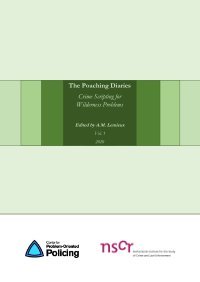By David Weisburd, Laura A. Wyckoff, Justin Ready, John E. Eck, Joshua C. Hinkle, Frank Gajewski
This study addresses the longstanding concern that focused crime prevention efforts—such as policing "hot spots"—might simply displace crime to nearby areas. While displacement has been a major critique of place-based policing, empirical studies have rarely been designed specifically to assess its presence or measure its impact. The authors designed and implemented a controlled field experiment in Jersey City, New Jersey, to examine whether such displacement occurs or whether crime control efforts might instead lead to a diffusion of benefits—i.e., crime reductions in areas surrounding targeted sites. The study focused on two areas: one known for street-level drug dealing and the other for prostitution. Using over 6,000 social observations, interviews, and ethnographic fieldwork, the researchers found little evidence of spatial displacement and instead documented significant diffusion of crime control benefits to adjacent areas. The findings challenge assumptions that crime merely moves elsewhere and reinforce the effectiveness of concentrated policing in reducing crime beyond targeted hot spots.
(Criminology, Volume 44, Number 3, 2006, pp. 549–594)




